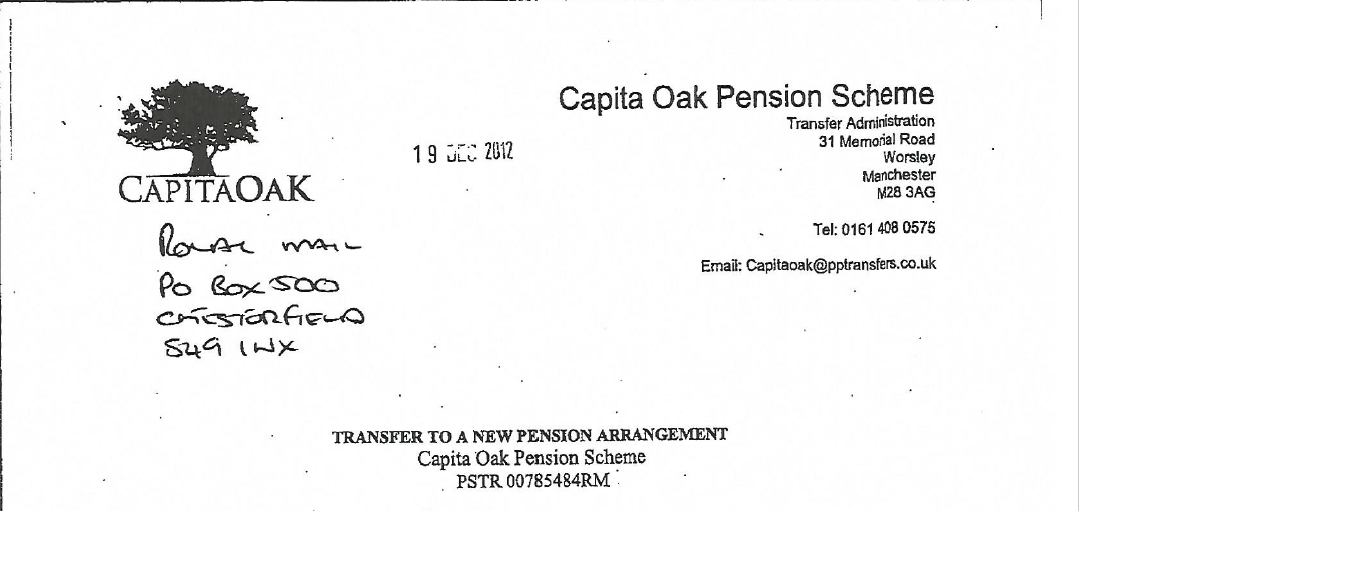I’ve been asked by a number of Park First investors to help them decide how to vote in the forthcoming vote – 25th November 2019.
There are many options and decisions, with communications coming out from various related and interested parties. It is understandable that investors have some difficult choices and are being given conflicting and often confusing information. So I am going to try to put the decision into context to help people to decide.
Putting aside the rights, wrongs and merits for the moment, there are two options that investors have to decide on by the 25th November. But this is just the first of many decisions which will have to be made in the coming months. So here’s a diagram to put it as simply as possible:

In a nutshell, if investors vote for the Administration there is a range of options – including liquidation if that is what the investors vote for once the Administration has presented all the facts and figures. And the £33 million set aside (put on the table) by Toby Whittaker will be used to give the Buyback investors their money back. If the investors vote for the Liquidation instead of the Administration on 25th November, the £33 million comes off the table and the Buyback investors will not get their money back.
The liquidation option is being offered by Quantuma and Dow Schofield Watts. If the investors opt for the liquidation choice and reject the administration by Smith & Williamson, the costs will be paid out of the assets which will be sold off to pay the professional fees. The businesses will also probably cease trading.
The administration is currently in place with Smith & Williamson and the costs are being paid for by Toby Whittaker at no cost to the investors.
I have spent a few weeks talking to Quantuma, Smith & Williamson and their solicitors Mishcon de Reya, as well as Park First and their solicitors’ Paul Hastings. I have also spoken to investors and associates of mine who are professionally interested in what is going on. I can see that there are is dilemma for the investors and unfortunately, not a lot of time to make up their minds about which way to vote.
The bottom line is that if investors vote for the administration, they will be offered liquidation as a subsequent option. If they vote for the liquidation, there are no subsequent options. I have encouraged Quantuma to hang back and put forward their liquidation proposal once the administration is further forward and the investors know more about the finances of Park First.
I see a close similarity between the Park First dilemma and the Brexit one. If British citizens had known more about Brexit or Remain, perhaps millions would have voted differently. Many people regretted their first decision because they only found out afterwards how many different versions of Brexit there would be (a wide range of deals, no deal, long-term economic impacts etc). A large proportion of the British population wish they had known more about their options before the referendum. And this is more or less where the Park First investors are.
The vote on Monday 25th November will also decide between two people who will be at the helm: Finbarr O’Connell of Smith & Williamson or Carl Jackson of Quantuma.
Smith & Williamson’s Finbarr O’Connell is a chartered accountant and licensed insolvency practitioner. He is a past president of the Insolvency Practitioners’ Association. He has recently been appointed as administrator to London Capital & Finance. His track record of successful administrations includes gold mines, Ukrainian wheat farms, a nuclear power plant and the Caterham Formula 1 team. Even with my sharpest spade, I haven’t been able to uncover any skeletons in his cupboard.
Quantuma’s Carl Jackson is also a chartered accountant and licensed insolvency practitioner. However, I haven’t been able to find out anything more about his track record except the fact that he was ordered by the ICAEW to pay a fine of £5,000 and costs of £83,557 after he admitted failing to collect £330,000 of creditors’ funds in a liquidation.
The ICAEW Tribunal reported that Jackson failed to collect £330,000 from an agent on behalf of a liquidated company’s creditors and that he hadn’t made a full and proper disclosure to the creditors. The £330k had gone to a bank account in Monaco rather than to Jackson’s solicitors’ bank account. The Tribunal also found that Jackson had not disclosed the full amount recovered from directors; payments remitted to the agent; fees the agent was claiming and seeking to offset against the funds; and the extent of the difficulties in recovering the funds wrongly retained by the agent.
I make no judgement for or against either O’Connell or Jackson and am entirely neutral on this issue. But O’Connell has a long track record of recovering and protecting hundreds of millions of pounds’ worth of creditors’ funds. While Jackson doesn’t.

In the past couple of weeks, I cannot fault the parties for their willingness to communicate and provide information on the proposals moving forward. But when I attended the creditors’ meeting on 1st October, I was struck by the strong feelings of anger and confusion in equal measure. The investors need to see some clarity and they want to understand just two things:
- What their investments are worth
- What refunds and returns they will get
At the first Park First creditors’ meeting, there was little talk of the intervention by the FCA in the Park First matter – and the role they have played in the uncertainty currently experienced by more than 4,000 investors. I do hope that a thorough investigation of this matter will disclose the FCA’s actions in full. All being well, heads will roll – hopefully the right heads.


“If the investors vote for the Liquidation instead of the Administration on 25th November, the £33 million comes off the table and the Buyback investors will not get their money back.”
Not true, according to https://safeorscam.net/park-first-administrator-is-guilty-of-misinforming-creditors/. The £33 million has been ringfenced on the order of the FCA and will be available regardless of what the creditors vote for.
From your previous article: “By comparison, Toby Whittaker’s Park First looks a much better bet. The only things that could possibly go wrong are that Glasgow, Gatwick and Luton airports get shut down, or that Elon Musk will invent a Tesla that will drive itself home alone from the airport. ”
Or that Park First fails to generate enough earnings to pay 8% to investors year after year, *after* all the commissions paid to unregulated introducers, and all the money Toby Whittaker extracts from it, and all other costs. The paragraph above is exactly the kind of nonsense that causes people to fall for scams. “It’s property so it must be safe as houses.” “People always need wood so investing in Brazilian forestry can’t go wrong.”
Why are you defending this Ponzi scam?
Why do you think that leaving the ringleader of the Ponzi scam in charge is going to result in a better outcome for creditors than winding it up and maximising recoveries?
Who actually wrote this article.
If the company goes into liquidation then TM loses it and the assets are sold off. The £33 million is ring fenced by the FCA.
The admistrator will sell or give back control of the business TW. That is totally unacceptable
This article is very inaccurate! The FCA had confirmed the £33m is available to investors no matter what! Why is the author misleading the readers/investors that don’t know the details??
This post here – https://bondreview.co.uk/2019/11/22/park-first-administrators-block-rival-administrator-from-making-their-case-to-investors/#comments – by Brev, on the same topic, seems to conclude this article here, is “nonsense” …. but as I have said before, pension-life.com often reports inaccurate info, rarely does its homework, and often doesn’t really understand the topic it reports on.
And members of this site pay handsomely for this – annually!
Ask yourself, why have there been no successes since this “so called class action” started? Maybe there never was a class action?
Has Capita Oak just been forgotten about. Seems all to be about Park first. But we feel forgotten by everyone apart from the SFO
how can we have forget that life’s have been destroyed and nothing is changing it appears more scams continue , and yet nothing is done to stop this
people like myself not only lost pension pots but are left with huge tax demands
that they weren’t expecting and have no means of paying , how can this be still going on in this day and age it cant be
This is most likely the work of Keith Geary, the scam artist.
take a look for yourselves;
http://keithburtonpaulgearyscam.blogspot.com/
http://keithgearyscammer.blogspot.com/
http://keithgearysafeorscam.com/